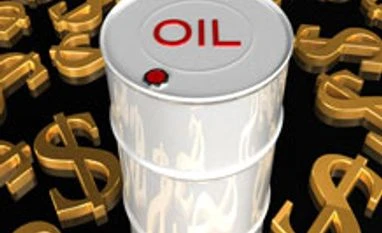Saudi Arabia's crude oil production is projected to rise to 9.8 million barrels per day (mbpd) this year from 9.6 mbpd, as the Kingdom tries to win back market share in its oil price war with US shale drillers, according to a review.
Saudi crude continues to face intense competition in key foreign markets which will keep exports at similar levels to last year, at around 7 mbpd.
The kingdom will be pumping 9.8 mbpd of oil, around 300,000 barrels more than its output measured by the Organisation of Petroleum Exporting Countries (Opec), according to the latest Quarterly Oil Market Review released by Jadwa Investment, headquartered in Riyadh.
Besides, slower shale oil growth and improved global economic growth will result in a more sustained rise in price in the last quarter of this year.
Yemini crisis has had an impact as Brent spiked to $60 per barrel during last month after Arab coalition forces intervened in the Yemeni civil war.
Although Yemen's importance as an oil producer is limited, there are wider repercussions for the global oil market if the conflict seriously deteriorates. Currently there are no reports of disruption to Yemeni supply and no threats to supplies through the Bab al-Mandeb Strait.
Moreover, the potential lifting of some of the sanctions related to Iran in June is not expected to add significant amounts of crude to oil markets this year as the lifting of sanctions is not expected to happen very quickly.
Saudi crude continues to face intense competition in key foreign markets which will keep exports at similar levels to last year, at around 7 mbpd.
The kingdom will be pumping 9.8 mbpd of oil, around 300,000 barrels more than its output measured by the Organisation of Petroleum Exporting Countries (Opec), according to the latest Quarterly Oil Market Review released by Jadwa Investment, headquartered in Riyadh.
More From This Section
The widening of global oil surplus to 2 mbpd led to Brent prices dropping by 29 per cent, quarter-on-quarter, to $54 per barrel in Q1 this year. Oil markets will continue to see large surpluses in Q2 and Q3 with regard to oil prices.
Besides, slower shale oil growth and improved global economic growth will result in a more sustained rise in price in the last quarter of this year.
Yemini crisis has had an impact as Brent spiked to $60 per barrel during last month after Arab coalition forces intervened in the Yemeni civil war.
Although Yemen's importance as an oil producer is limited, there are wider repercussions for the global oil market if the conflict seriously deteriorates. Currently there are no reports of disruption to Yemeni supply and no threats to supplies through the Bab al-Mandeb Strait.
Moreover, the potential lifting of some of the sanctions related to Iran in June is not expected to add significant amounts of crude to oil markets this year as the lifting of sanctions is not expected to happen very quickly.
)